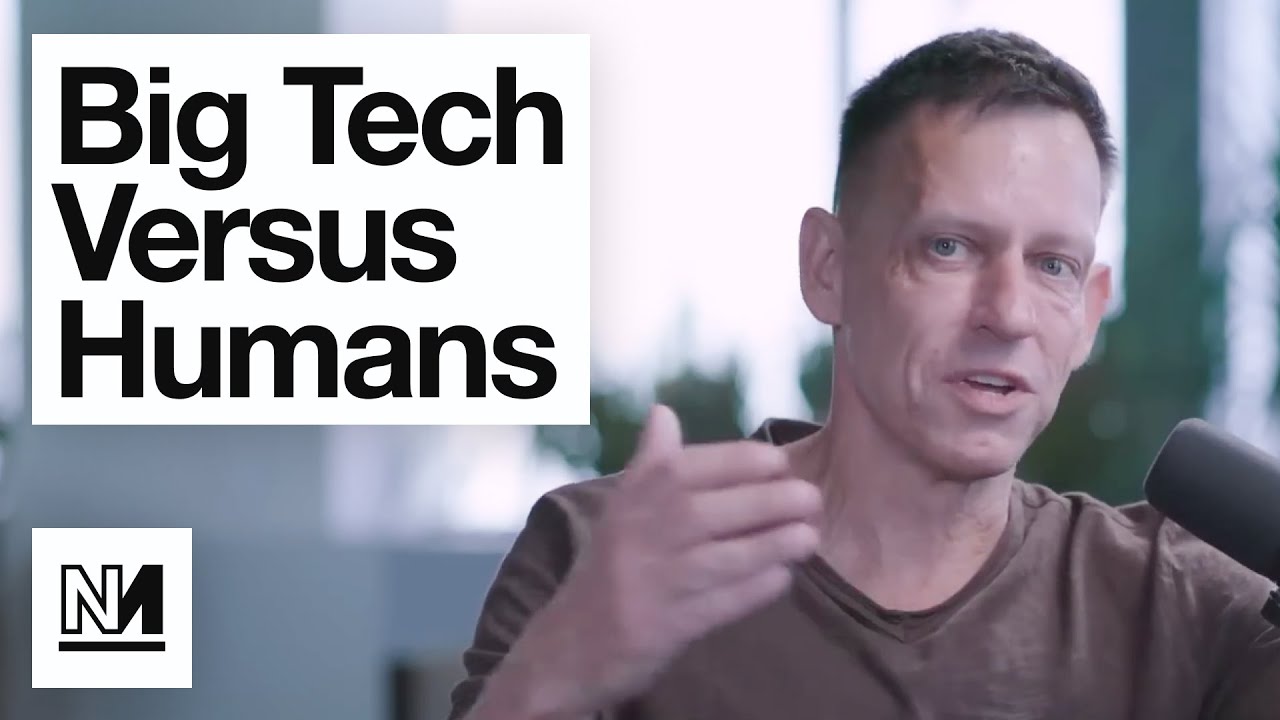The video examines Peter Thiel’s ambivalent and contradictory views on humanity’s future, highlighting his support for radical technological transformation while expressing deep uncertainty and elitist attitudes that raise ethical concerns. It also critiques the broader Silicon Valley mindset, warning that the unchecked power and influence of tech billionaires like Thiel pose significant risks to society and human values.
The video explores the complex and unsettling views of Peter Thiel, a prominent tech billionaire and influential figure in Silicon Valley, known for co-founding PayPal and investing early in Facebook. Thiel, who is worth $20 billion and chairs Palantir, a company specializing in surveillance technology for military and healthcare sectors, expresses ambivalence about the future of humanity. When asked directly if he wants the human race to endure, Thiel hesitates for an extended period before reluctantly affirming that he does, revealing deep uncertainty about humanity’s fate. This hesitation sets the tone for a broader discussion on transhumanism, a movement popular in Silicon Valley that advocates for augmenting human capabilities through technology, potentially leading to radical transformations or even digital immortality.
Thiel critiques current forms of transformation, such as gender reassignment surgeries, as insufficient, advocating instead for profound changes that alter the mind, heart, and body. He contrasts this with Orthodox Christianity, which he says demands transformation of the soul, suggesting that transhumanism falls short of true transcendence. This perspective highlights Thiel’s complex and somewhat contradictory stance on human evolution and technology. The video also contrasts transhumanism with posthumanism, the latter advocating for the replacement rather than augmentation of humans, citing Richard Sutton, a leading AI scientist, who controversially argues that smarter AI entities becoming powerful should not be feared, reflecting a cold, meritocratic view of intelligence and power.
The video’s commentator expresses deep skepticism and concern about Thiel and similar tech billionaires, describing them as psychopathic and self-interested. They argue that these individuals, insulated by wealth and success, believe their vision for the future is inherently correct and beneficial, disregarding the broader societal impact. This mindset, the commentator warns, leads to a dangerous lack of accountability and a dismissive attitude toward criticism, especially regarding AI and other transformative technologies. The elitist worldview held by many in Silicon Valley, including Thiel, is seen as fascist-adjacent, valuing only a select few deemed smart and ambitious, while being indifferent to the fate of the majority.
Further complicating Thiel’s public persona is his bizarre belief that climate activist Greta Thunberg is the Antichrist, accusing her of using climate fear to usher in a totalitarian world government that would enforce stagnation. This conspiracy theory underscores Thiel’s contradictory and paranoid thinking. The video includes an exchange where the host suggests that the authoritarian future Thiel fears might ironically be enabled by the very technologies his company develops, such as surveillance and military AI. Thiel’s evasive and contradictory responses to questions about his role in this potential future deepen concerns about his influence and intentions.
In conclusion, the video paints a troubling picture of Peter Thiel as a powerful yet deeply conflicted figure whose vision for humanity’s future is ambiguous and potentially dangerous. His involvement in advanced AI and surveillance technologies, combined with his elitist and sometimes conspiratorial worldview, raises alarms about the direction in which he and similar tech elites might steer society. The commentator warns that the immense power held by individuals like Thiel, coupled with their apparent disregard for the broader human impact, poses significant risks, making it imperative to critically scrutinize their influence on the future of technology and humanity.
